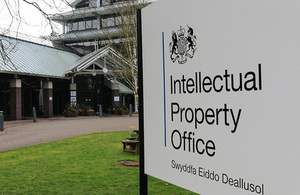Intellectual Property Office sets out new evidence and research projects
The Intellectual Property Office announces its research programme and sets out new evidence and research projects.

The Intellectual Property Office (IPO) today announced its research programme to help maintain the UK’s position at the forefront of research into the economic impact of intellectual property rights.
For the past two years, the IPO has worked with academia and industry to help develop the economic evidence base and forge relationships in the intellectual property research community, nationally and internationally. The programme proposed for 2013 /14 builds on this work.
New research projects and areas of investigation will include:
- the role of Intellectual Property (IP) in facilitating business finance and economic growth
- a long-term series of projects to develop an economic approach to evaluating the impact of IP enforcement measures, including educational campaigns
- patent framework and competitiveness and whether this is supporting the competitiveness of UK business sectors
- the growth and demand of trade mark applications. This will examine the reasons behind the 40% increase in UK trade mark applications since the downturn
- the impact of potential European Union policy-wide influence on the copyright framework
- an assessment of the costs and benefits of using mediation rather than the court service for IP disputes
John Alty, Chief Executive of the IPO said:
It is vital that we have access to the best available evidence and data to truly understand the role that IP plays in the UK economy. Over the last couple of years we have undertaken some groundbreaking research to help inform our policy making and ensure IP policy supports innovation.
I would urge those with an interest in IP and innovation to join the debate and to make sure that the evidence base we have is of the highest quality.
The proposals for the new programme have been considered and supported by members of the research advisory groups made up of experts from academia, industry and policy-makers.
The programme will be reviewed quarterly. Each research project will be tendered through a competitive tendering process.
If you are interested in bidding for any of these projects please contact: david.humphries@ipo.gov.uk.
A full version of the programme.
Notes to editors
-
The IPO is within the Department for Business, Innovation, and Skills and is responsible for the national framework of Intellectual Property rights, comprising patents, designs, trade marks and copyright.
-
Its role is to help manage an IP system that encourages innovation and creativity, balances the needs of consumers and users, promotes strong and competitive markets and is the foundation of the knowledge-based economy.
-
It operates in a national and an international environment and its work is governed by national and international law, including various international treaties relating to IP to which the United Kingdom is a party.
-
For media queries, please contact Veena Mapara on 0207 215 5614.
-
For emergency media calls out-of-hours please contact the duty press officer at the Department for Business, Innovation and Skills on +44 (0) 207 215 3505.
-
The government’s economic policy objective is to achieve ‘strong, sustainable and balanced growth that is more evenly shared across the country and between industries’. It set four ambitions in the ‘Plan for Growth’ (PDF, 1.7MB), published at Budget 2011:
- to create the most competitive tax system in the G20
- to make the UK the best place in Europe to start, finance and grow a business
- to encourage investment and exports as a route to a more balanced economy
- to create a more educated workforce that is the most flexible in Europe
Work is underway across government to achieve these ambitions, including progress on more than 250 measures as part of the Growth Review. Developing an Industrial Strategy gives new impetus to this work by providing businesses, investors and the public with more clarity about the long-term direction in which the government wants the economy to travel.